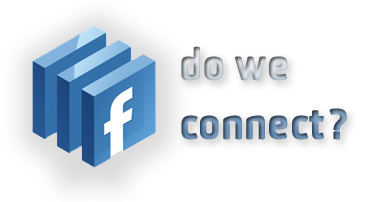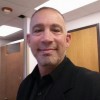“So, you’ve decided to put yourself out there as a guru on Facebook.”
That’s how it started, over dinner at our favorite Indian spot. I’m not too quick but I’m pretty sure I detected a little judgment there. Maybe a statement about folks (like me) for presenting a false persona. Not being fully “authentic” on Facebook has become somewhat en vogue these days. So I went digging in my bag for “How to Handle Judgmental Critiques” and pulled out my favorite tool: how might this person be right?
It’s true, yes, that at least 75 percent of the content I post is in fact spiritual—usually something inspiring from a master or my own musings along with some nifty art—and in the process I’ve cultivated a small but lovely “following” which encourages me.
Of course, this “following” really has more to do with whom Facebook decides will be able to see my posts in their newsfeed, which is really only about 10 percent of my entire friend list. But I like to trick myself into believing these 50 people actually find my stuff inspiring. I enjoy it and it keeps me on track in the same way declaring an affirmation does. But does that make me a “guru wannabe?”
Authenticity. The foundation for trust, right? A pre-requisite for…everything. Any expression of spirituality that’s devoid of authenticity is pretty much like Twinkies for the soul: no real nutritional value. Not long ago, Elephant Journal published an essay suggesting that just because you post a bunch of Rumi memes does not make you “spiritual.”
Newsflash: Facebook has become the playground of the nouveau gurus.
Self-appointed “gurus” on Facebook are now more common than Starbucks in Manhattan.
All it takes is a home page and access to a lot of cool memes by spiritual masters, or some wisdom sayings from, well, from any ol’ body. If not that, anything from Rumi will do.
Facebook has done more for Rumi’s career than Coleman Barks could have ever dreamed of.
But, I digress. This is about the newest phenomena of Facebook Spiritualism. Especially if you are hot, literate and have access to wisdom sayings and inspirational memes, it’s easier to become a Facebook guru than, well, a real guru.
Some folks even create their own memes, putting quotations around their own statements, balanced on the other hand by those who fail to attribute quotations, making it appear as if they made the statement themselves. Indeed, Facebook has made it possible for anybody to try on any persona they wish in their wildest fantasies and there is no shortage of guru-wannabees.
Blasphemy, you say?
Okay, I’m clear on this much: Facebook isn’t the “real” world in the same way my yoga practice isn’t the real world, but that by no means makes it invalid. Social media is really practice for the world I want to create. The muscle that gets stretched here is my own capacity to imagine. How do I want to show up in the real world? Which qualities and traits do I admire and wish to cultivate through this medium?
Facebook provides an arena for me to put on any persona I choose and to express that fully. It’s only different from the “real” world in that there is a buffer between me and…well, you. In the “real” world, interactions unfold so quickly that I often can’t match the inner reaction to my preferred persona.
And let me be honest, I’m usually capable of being much kinder, wittier, insightful, skillful and wise when I’m sitting at home in my pi’s looking at my retina display. It’s far easier to align with my highest ideals when I have a few minutes, or even a few days, to think before I open mouth.
 Truly, Facebook is a realm between dream state and waking state; a modified form of lucid dreaming for the majority of us who are less advanced. The main skill here is impulse control. Check that impulse to say something regrettable. Think about it and get into alignment. Not so hard, is it? Well, there are still times when I don’t do so well with certain kinds of radicals.
Truly, Facebook is a realm between dream state and waking state; a modified form of lucid dreaming for the majority of us who are less advanced. The main skill here is impulse control. Check that impulse to say something regrettable. Think about it and get into alignment. Not so hard, is it? Well, there are still times when I don’t do so well with certain kinds of radicals.
Still, the criticism is about authenticity, sincerity and integrity. You might say, “Well, I know you, and that’s not the real you.” Which begs the question: who really knows the real me? And, who gets to define who the real me is? Is it what you see when I’m in the supermarket, at work, or at a party? Is the “real me” the guy who woke up on the wrong side of the bed because of a restless night or is stressed about the loss of a loved one, or perhaps suffering from a depression or other illness? Is the real me the person I was crafted into by my family, with all of our cultural imprints?
Honestly, I didn’t even know who the real me was until I was closing in on the age of 50.
The real me is beyond the persona, beyond anything you can see. The task of my life is to get beneath the story of who I think I am, to who I really am. The kaleidoscope of personas I’ve played—the jock, the artist, the intellectual, the counselor, the warrior, the ritualist, the yogi, the shaman—none of them really me, but rather personas that served as some fragmented expression of who I am.
I suspect we’re all the same in this.
We try on different masks as we stumble through various stages in life. Facebook just offers another venue for that. The problem with personas is they are external presentations. The focus is outward. But a true guru, well, that’s an inside deal. If the persona, no matter how “good” or “holy,” does not expand my heart and make me kinder, more compassionate and more loving, then it’s not much more than a game. And for a long time, I had good game, but it didn’t open my heart. So I had to figure out a way to use this medium (Facebook) for something real.
How do I get beyond the game?
This is my practice: I am intentional about what I communicate in this realm; my interactions are more deliberate and so invite a different set of reactions. Facebook mimics ‘real life’ in that what I choose to focus on, is what I get the most of.
My news feed is composed almost entirely of uplifting memes. I get a lot of Upworthy, elephant journal, Pema Chodron, Heart Math Institute, Yogaville, Gratefulness.org and The Other 99%. I click “like” a lot on those posts. I click “like” on statuses that inspire me, so Facebook gives me more of those folks.
In the same manner, I disregard (or delete) people who complain a lot, carry on as victims, make nasty comments and/or pick fights. So I rarely see that when I look at Facebook. Perhaps one day I will be more expansive and able to embrace such people with more love, or at least equanimity, but for now, this is the best I can do.
There are those who use Facebook just to keep up with family and movies and local gossip. That’s fine for them. For others, like me, it’s a powerful tool for deliberate co-creation. It can be used to cultivate an enlightened mind and a soft heart. Fact is, Facebook has become a place where I get to practice being my Best Me.
Status updates become affirmations and intentions of whom I choose to be that day. You won’t catch me complaining or picking fights with people in my status. (Okay, so I may have had a few hiccups here and there, particularly during election time.) You won’t catch me arguing with people or engaging aggressive behavior on my page.
Aggressive people are my delete button until I have developed the requisite skill to manage my own aggression. Yes, I get to practice that too on Facebook.
Facebook is an extension of the world we live in and as such, has become an extension of my yoga mat. It’s a place where I practice kindness, compassion, wisdom, humility and graciousness. I make a deliberate, intentional point to express my spirituality via this medium. Not the kind of “guru” that covets adoration or claims to be beyond conflict. I’m not that guy.
My path is about transparency, authenticity and vulnerability; to communicate what i consider to be mature, deep masculinity and respect for life. This is a practice, not so much a persona. If this practice inspires you and you want to join me, I am your friend. Not your guru.
Because my practice is being played out in public, I get instant feedback. The participation from my friends serves to support and encourage these qualities I am expressing. A community is created which supports certain values and roles and this is a potent agent for shaping character; an affirmation that one individual’s growth and development is important to a community, and as members of a shared community, we support each other in reaching our highest potential. In this way, Facebook and other media that steam through Facebook (such as Elephant Journal and Upworthy) have become powerful agents of social change.
So go ahead, get your Inner Guru on if that’s what makes your heart sing. Make that your practice.
The world needs it.
Love elephant and want to go steady?
Sign up for our (curated) daily and weekly newsletters!
Editorial Assistant: Christina Lorenzo / Editor: Catherine Monkman
Photo: Flickr/MrTopf, elephant journal archives







Read 2 comments and reply